#Jim Risch
Text
Idaho Governor DILFs
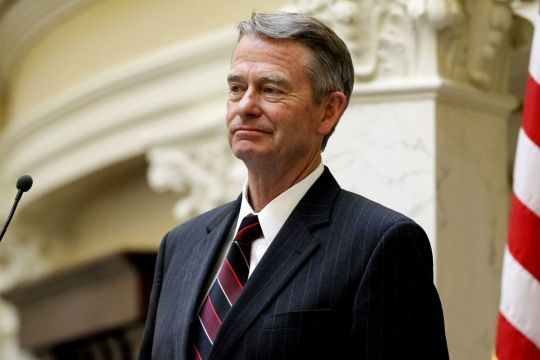


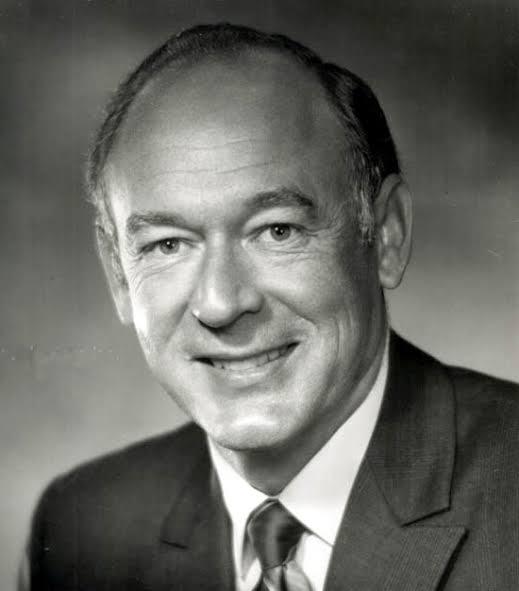

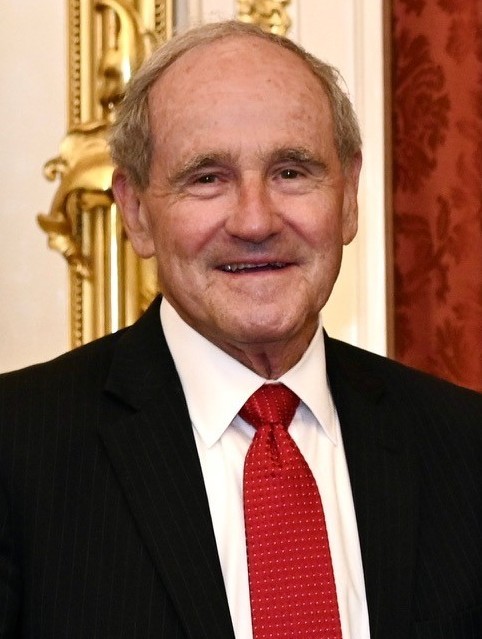
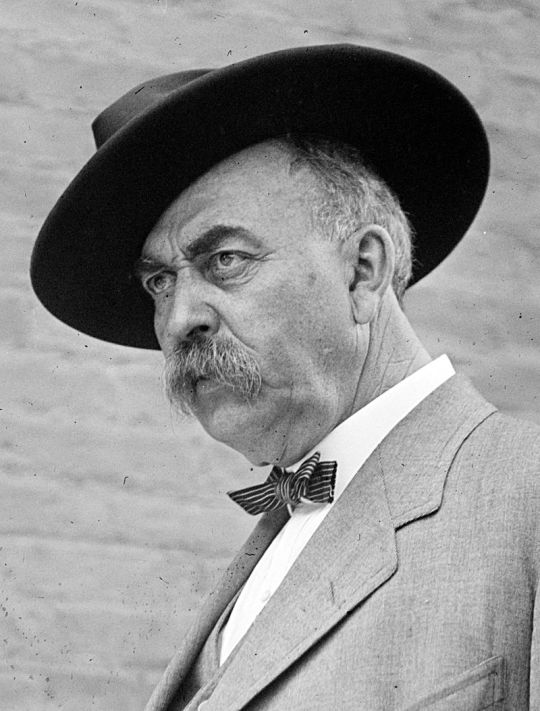
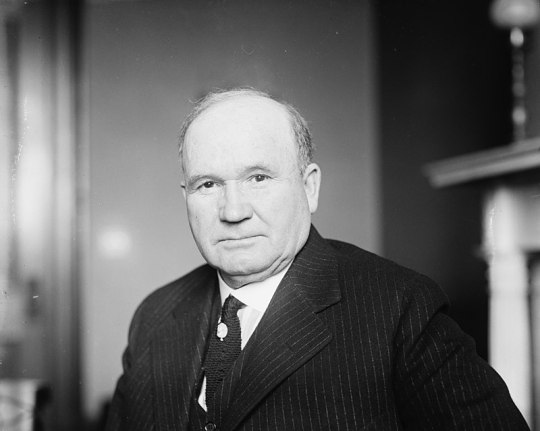
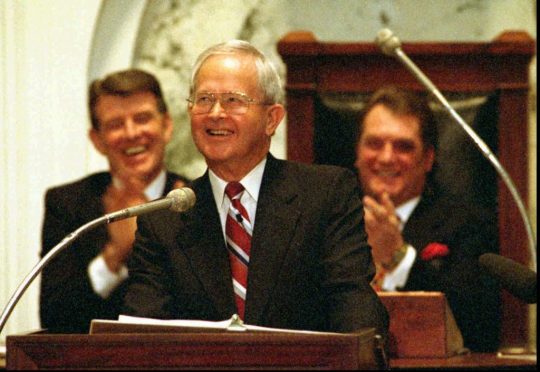





Brad Little, Chase A. Clark, Butch Otter, Cecil Andrus, Arnold Williams, Jim Risch, James H. Hawley, Frank R. Gooding, Phil Batt, Dirk Kempthorne, Don Samuelson, John Evans, Leonard B. Jordan, Robert E. Smylie
#Brad Little#Chase A. Clark#Butch Otter#Cecil Andrus#Arnold Williams#Jim Risch#James H. Hawley#Frank R. Gooding#Phil Batt#Dirk Kempthorne#Don Samuelson#John Evans#Leonard B. Jordan#Robert E. Smylie#GovernorDILFs
9 notes
·
View notes
Photo

Newly released footage shows J6 insurrectionists ransacking Jim Risch's office
Tucker Carlson's latest propaganda campaign whitewashed the right-wing domestic terrorists who assaulted 140 police officers and attempted to execute Vice President Mike Pence during their violent insurrection on January 6. He has focused on painting the insurrectionists as patriotic Americans who were simply exercising their right to protest. — Read the rest
https://boingboing.net/2023/03/09/newly-released-footage-shows-j6-insurrectionists-ransacking-jim-rischs-office.html
#Post#domestic terrorism#gop#insurrection#J6#j6 insurrection#Jim Risch#tucker carlson#Mark Frauenfelder#Boing Boing
0 notes
Text
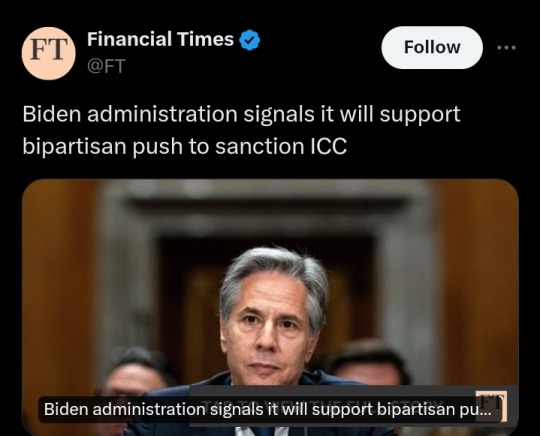
The Joe Biden administration will work with Congress on possible sanctions against the International Criminal Court after its prosecutor announced it was seeking arrest warrants for senior Israeli and Hamas officials, US secretary of state Antony Blinken said on Tuesday.
Congressional Republicans have signalled they plan to introduce legislation that will impose costs on the court for its decision and are expected to force a vote on a measure that could lay bare the divisions with the Democrats over the Israel-Hamas war.
Jim Risch, the top Republican on the Senate foreign relations committee, asked Blinken at a hearing whether he would support legislation to counter “the ICC sticking its nose in the business of countries that have an independent, legitimate democratic judicial system”.
Risch said he and other members were working on legislation to address the court’s actions, which he described as “wrong-headed”.
Blinken’s openness to bipartisan co-operation over the ICC is a sign of the level of anger in Washington over its request for arrest warrants for Israel’s Prime Minister Benjamin Netanyahu and defence minister Yoav Gallant.
Blinken told the committee that while the “devil’s in the details”, the Biden administration would consider Republican proposals and “take it from there”. Please use the sharing tools found via the share button at the top or side of articles.
“We want to work with you on a bipartisan basis to find an appropriate response,” Blinken said.The administration of Donald Trump in 2020 sanctioned top ICC officials in response to their efforts to investigate alleged US war crimes in Afghanistan.
The sanctions were lifted by the Biden administration in 2021, although at the time it said it was opposed to the court’s actions relating to Afghanistan and the Palestinian territories.
#yemen#jerusalem#tel aviv#current events#palestine#free palestine#gaza#free gaza#news on gaza#palestine news#news update#war news#war on gaza#anthony blinken#joe biden#icc#international criminal court#gaza genocide#genocide joe#genocide
905 notes
·
View notes
Text

Billions of dollars worth of US weaponry remains in the pipeline for Israel, despite delays to one shipment of bombs and a review of others by President Joe Biden’s administration over concerns that their use in an assault could wreak more devastation on civilians in Palestine’s Gaza.
A senior US official said this week that the administration had reviewed the delivery of weapons that Israel might use for a major invasion of the southern Gaza city of Rafah, where over 1.5 million displaced Palestinian civilians have sought refuge, and as a result paused a shipment of bombs to Israel with a reported value of tens of millions of dollars.
A wide range of other military equipment is still due to go to Israel however, including joint direct attack munitions (JDAMS) — which convert dumb bombs into precision weapons — as well as tank rounds, mortars and armoured tactical vehicles, Senator Jim Risch, the top Republican on the Senate Foreign Relations Committee, told reporters.
Risch said those munitions were not moving through the approval process as quickly as they should be, noting some had been in the works since December, while assistance for Israel more typically sails through the review process within weeks.
The US declared its support for Israel at the beginning of its war on Gaza on October 7 of last year, and has not held back in arming Israel, regardless of the alarming number of civilian casualties inflicted on Gaza.
#free Palestine#free gaza#I stand with Palestine#Gaza#Palestine#Gazaunderattack#Palestinian Genocide#Gaza Genocide#end the occupation#Israel is an illegal occupier#Israel is committing genocide#Israel is committing war crimes#Israel is a terrorist state#Israel is a war criminal#Israel is an apartheid state#Israel is evil#Israeli war crimes#Israeli terrorism#IOF Terrorism#Israel kills babies#Israel kills children#Israel kills innocents#Israel is a murder state#Israeli Terrorists#Israeli war criminals#Boycott Israel#Israel kills journalists#Israel kills kids#Israel murders innocents#Israel murders children
30 notes
·
View notes
Text
On March 5, Haiti’s acting prime minister took off on a chartered Gulfstream jet from a New Jersey airport with nowhere to go.
Ariel Henry—Haiti’s unelected leader since July 2021—had spent weeks traveling in Africa and the Americas trying to rally international support for his country, which has been mired in chronic poverty, political instability, and an insurgency of criminal groups led by a former Haitian police officer turned gang leader, Jimmy Chérizier, known as “Barbecue.”
While Henry was out of the country, Barbecue and his allies coordinated an armed assault calling for Henry’s ouster. They stormed police stations and prisons, released around 3,700 inmates, and attacked the airport in the capital, Port-au-Prince, making it too dangerous for Henry to land there.
Instead, Henry tried to negotiate a plan to land in neighboring Dominican Republic, but he was rebuffed at the last minute by the government there, according to U.S. officials, Caribbean officials, and regional experts familiar with the matter. Other Caribbean countries reacted coolly to the prospect of hosting Henry as his support domestically and abroad began collapsing. Finally, he landed in the U.S. territory of Puerto Rico, where he remained in limbo until March 12, when he announced his intention to resign.
The chaos and uncertainty of Henry’s final flight as prime minister underlined the political tumult that has gripped Haiti—and the tepid response to Haiti’s downward spiral by an overstretched international community reluctant to tackle yet another crisis.
If Haiti isn’t yet formally deemed a failed state, it’s well on its way. Government institutions and basic services have broken down and gang violence has sparked one of the worst humanitarian and refugee crises in the Western Hemisphere.
“It’s an extremely dangerous situation,” said Bocchit Edmond, Haiti’s former foreign minister who now runs the Haitian Observatory of International Relations think tank. “Without a change, we are facing a possibility of an entire nation becoming a big open-air jail run by gangs.”
Yet what that change should look like—and who might be willing and able to step in to make it happen—remains as unclear now as it has for more than two years.
Haiti’s near collapse has led to frantic meetings among regional leaders in recent weeks and heated debates between the Biden administration and Congress over what role, if any, the United States should play in the unfolding emergency in its own backyard. U.S. Secretary of State Antony Blinken traveled to Jamaica on Monday to meet with Caribbean leaders on the issue, and he pledged an additional $100 million in U.S. funds to finance the deployment of a multinational force to help stabilize the country.
The Biden administration is urging Congress to unlock even more funds. Two powerful Republican lawmakers—Sen. Jim Risch, the top Republican on the Senate Foreign Relations Committee, and Rep. Michael McCaul, chairman of the House Foreign Affairs Committee—argue that the administration doesn’t have adequate plans for how it would use those funds. They also charge that the administration let its Haiti policy fester in indecision for too long, exacerbating the country’s current predicament.
Haiti, the poorest country in the Western Hemisphere, has faced chronic instability for decades, fueled in part by devastating natural disasters and international aid mishaps, including a U.N. mission that brought a deadly cholera outbreak to the country as well as sexual exploitation and abuse of women and children by U.N. peacekeepers, and a 2010 earthquake that killed an estimated 300,000, followed by bungled international relief efforts that sparked a cycle of mismanagement and stunted development projects.
In 2021, then-President Jovenel Moïse was assassinated by a group of gunmen in his home, sparking the current political crisis in the country. (A Haitian judge last month indicted three prominent individuals—Moïse’s widow, an ex-prime minister, and a former Haitian chief of police—for involvement in the assassination, charges they have denied as baseless political reprisals.) Henry took over as acting president shortly after and soon began pleading with foreign powers for a military intervention to address the country’s spiraling instability.
Gangs have taken control of much of Port-au-Prince, and rights groups say the gangs have used rape and torture as weapons against the civilian population. Thousands of Haitians have been killed and kidnapped.
“It is difficult to overstate the gravity of the political, security, human rights and humanitarian situation in Haiti today,” the U.N. mission in Haiti wrote in a report to the U.N. Security Council in January, a copy of which was obtained by Foreign Policy. The violence has led to a surge in Haitians fleeing the country; the report noted that the number of Haitians fleeing to Central America with the aim of making it across the U.S. southern border increased 23-fold in 2023—from 1,550 people in July to 35,500 people in October.
The U.S. Embassy in Haiti this week evacuated some diplomats and nonessential personnel as well as deployed a specialized detachment of U.S. Marines to bolster the embassy’s security. Gen. Laura Richardson, commander of U.S. Southern Command, told lawmakers in a hearing on Thursday that the U.S. military had plans ready to evacuate U.S. citizens if the crisis worsened.
“It’s absolute chaos. People are crying out for even some basic level of security,” said Nicole Widdersheim, deputy Washington director at Human Rights Watch. “We need to see the international community doing something very rapid to bring security and stability and protection from the violence.”
The international community, meanwhile, procrastinated on the matter for over two years, officials and experts said.
After Moïse’s assassination, the United States balked at the prospect of leading a multinational force. In 2023, U.S. President Joe Biden privately asked Canadian Prime Minister Justin Trudeau if Canada would take the lead, current and former officials said. Canada declined, but it offered to contribute $100 million to help fund such a force. No other country in South or Central America stepped up. Haiti, coordinating with the Biden administration, then turned to Africa. Kenya agreed to lead a mission and deploy 1,000 police officers to Haiti as part of an effort that would be coordinated and bankrolled mostly by the United States.
That plan stalled when Kenyan opposition politicians challenged the program’s legality. The U.S. government, meanwhile, already overstretched by the wars in Ukraine and Gaza, let Haiti fall by the wayside, current and former U.S. officials told Foreign Policy. Biden didn’t nominate a U.S. ambassador to Haiti until May 2023, nearly two years after Moïse’s assassination. Biden’s nominee, career diplomat Dennis Hankins, was confirmed to the post by the U.S. Senate on Thursday.
“A lot of countries at the beginning were reluctant to take the lead, though Haiti needs urgent help,” Edmond said. But, he added, “At the end of the day, we also need to take our own responsibilities for our own country. I don’t think I will throw the blame only on the international community.”
Henry’s resignation announcement was quietly seen as a relief by some U.S. and regional officials, but it also created new challenges as the region tries to cobble together a temporary governance structure from afar to lead Haiti out of its crisis.
His announcement came after quiet pressure from the Caribbean Community (CARICOM), officials said, as well as repeated threats from gang leaders should he return to the country. (The White House has denied reports that it also pressured Henry to resign.)
Now, CARICOM is helping craft a new presidential transitional council composed of seven voting members and two observers, according to a copy of the agreement obtained by Foreign Policy. Candidates for the council would be put forward by at least five active Haitian political parties with input from CARICOM-screened civil society organizations. Once appointed, the new council, in theory, would help restore legitimacy to Haiti’s absent government and lead the country on a path toward stability and, eventually, elections. Henry has said he’ll officially step down once the new council is in place.
Almost immediately, though, current and former officials said, those efforts hit a wall as Haitian elites began wrangling with CARICOM officials over who should make the final cut, and some potential member candidates voiced fear for their families’ lives if they joined the council. On Friday, Blinken said that most of the parties have named their representatives for the council but that several still have not.
Edmond said many Haitians are skeptical of the plan and “don’t believe it’s the right solution.” Edmond said he believes a better alternative would be for the Haitian Supreme Court to take temporary control and appoint a technocrat as prime minister to strengthen Haiti’s national police forces and lead the country into elections.
Meanwhile, Henry’s resignation has put on hold the U.S.- and U.N.-backed plan for Kenya to deploy a police force to Haiti to help restore order to the country. Kenyan President William Ruto said he remained committed to the plan but that it would only occur after the transitional council was established. It’s unclear whether Henry’s resignation will create new legal hurdles for Ruto to carry out the deployment.
Biden administration officials also considered offers from Senegal and Rwanda to lead the security assistance force, but those proposals were ultimately rejected in favor of Kenya, current and former U.S. and Haitian officials said. Rwanda faces widespread criticisms over its checkered record on human rights and authoritarian bent, and Senegal is currently mired in its own political crisis over delayed elections. However, Kenya’s police have also been accused of committing abuses at home by human rights groups, including the use of excessive force and the killing of more than 100 people in 2023.
The planned Kenyan operation, even if it is able to commence, faces significant practical and logistical challenges, U.S. officials and congressional aides said. For starters, neither Kenya, the United States, nor other regional powers have stated what the rules of engagement would be for Kenyan forces once they are deployed to the country, where they face the daunting task of quelling powerful and heavily armed gangs and a weakened and embattled local police force.
There is also the broader question of whether adding more police will solve the deeper systemic issues that led to the current situation. “The police cannot make significant inroads against gangs absent a broader political breakthrough,” Pierre Espérance, the executive director of the National Human Rights Defense Network in Haiti, argued in Foreign Policy last July. “In Haiti, gang members are not independent warlords operating apart from the state. They are part of the way the state functions—and how political leaders assert power.”
An unclassified U.S. intelligence assessment released this week predicted that Haitian gangs “will be more likely to violently resist a foreign national force deployment to Haiti because they perceive it to be a shared threat to their control and operations” and that Haiti’s national police have been “unable to counter gang violence and [have] been plagued by resource issues, corruption challenges, and limited training.”
Any deployment of Kenyan forces would also require substantial logistical support from the U.S. military, U.S. officials and congressional aides familiar with the matter said. Administration officials have told Congress that once given the green light, Kenyan police could be deployed to Haiti in a matter of 45 to 60 days in ideal conditions—and without U.S. boots on the ground. But Haiti has no clear base or logistics hub for the Kenyan police to be deployed to, particularly after gangs seized control of major power centers in Port-au-Prince.
Another complicating factor is the funding mechanism. After balking for nearly two years on proposals to deploy their own forces to Haiti, the U.S. and Canadian governments have both pledged to fund the Kenyan-led force, but no funding mechanism has been set up yet to do that. A multinational police mission in Haiti could cost an estimated $500 million to $800 million per year, State Department officials have told congressional oversight committees.
Risch has held up an estimated $40 million of the first tranche of U.S. funding for the Kenya-led mission. “[A]fter years of discussions, repeated requests for information, and providing partial funding to help them plan, the administration only this afternoon sent us a rough plan to address this crisis,” Risch said in a joint statement with McCaul. The administration “owes Congress a lot more details in a more timely manner before it gets more funding,” they said.
John Kirby, White House National Security Council spokesperson, said the situation is getting worse in the meantime. “The violence has been increasing, not decreasing, as well as the instability. And, of course, the Haitian people are the ones that are suffering as a result,” he told reporters on Thursday.
Edmond said that even if the Kenya-led mission gets underway, the United States has a “moral obligation to consider, before the arrival of the Kenyan forces, a way to help the national police forces that are now being overwhelmed by the gangs.”
“The United States is the leader of the free world. Haiti is a member of that world, one of the closest neighbors to the U.S. There is a moral obligation here to step in.”
Widdersheim said the United States can’t dodge responsibilities. “Half measures won’t be good enough this time,” she said. “The U.S. government hasn’t in the past seemed to care enough to truly invest in Haiti’s long-term development, and it’s to our detriment because nothing ever sticks; we just get stuck doing half measures that always fail.”
27 notes
·
View notes
Text
This article is from last year, but this year is when Congress is deciding on the bill one of my state's representatives put forward to allow people to hunt and kill grizzlies, which are still threatened and are a keystone species in many ecosystems here.
Here's a link to donate to the Sierra Club, which is an environmental organization that does a lot of work to fight against these kinds of potentially catastrophic policies.
Here is another article from a different source about the proposed bill (this article is also from last year, but again, the bill is going to be decided soon).
#grizzlies#grizzly bear#threatened species#keystone species#idaho#us#u.s.#us politics#environment#ecosystem#sierra club#wildlife
5 notes
·
View notes
Text
23 Republican Senators & 124 Congressmen signed an amicus brief to the Supreme Court asking for a 50 state ban on mifepristone, a drug safer than tylenol that is standard treatment for abortion & miscarriages, "due to safety concerns".
The brief DARES to argue that banning the life saving drug would save women from 'reproductive control'. (x)
These 147 people would rather have women die of sepsis than let women control their own bodies. If your representatives are on this list, call them and tell their office you will be voting against them in the next election because they asked SCOTUS to throw the US medical drug system into chaos at the cost of American lives.
United States Senate
Lead Senator: Cindy Hyde-Smith (MS)
John Barrasso (WY)
Mike Braun (IN)
Katie Britt (AL)
Ted Budd (NC)
Bill Cassidy (LA)
Kevin Cramer (ND)
Mike Crapo (ID)
Ted Cruz (TX)
Steve Daines (MT)
Josh Hawley (MO)
John Hoeven (ND)
James Lankford (OK)
Mike Lee (UT)
Cynthia Lummis (WY)
Roger Marshall (KS)
Markwayne Mullin (OK)
James Risch (ID)
Marco Rubio (FL)
Rich Scott (FL)
John Thune (SD)
Tommy Tuberville (AL)
Roger Wicker (MS)
United States House of Representatives
Lead Representative: August Pfluger (TX–11)
Robert Aderholt (AL–04)
Mark Alford (MO–04)
Rick Allen (GA–12)
Jodey Arrington (TX–19)
Brian Babin (TX–36)
Troy Balderson (OH–12)
Jim Banks (IN–03)
Aaron Bean (FL–04)
Cliff Bentz (OR–02)
Jack Bergman (MI–01)
Andy Biggs (AZ–05)
Gus Bilirakis (FL–12)
Dan Bishop (NC–08)
Lauren Boebert (CO–03)
Mike Bost (IL–12)
Josh Brecheen (OK–02)
Ken Buck (CO–04)
Tim Burchett (TN–02)
Michael Burgess, M.D. (TX–26)
Eric Burlison (MO–07)
Kat Cammack (FL–03)
Mike Carey (OH–15)
Jerry Carl (AL–01)
Earl L. “Buddy” Carter (GA–01)
John Carter (TX–31)
Ben Cline (VA–06)
Michael Cloud (TX–27)
Andrew Clyde (GA–09)
Mike Collins (GA–10)
Elijah Crane (AZ–02)
Eric A. “Rick” Crawford (AR–01)
John Curtis (UT–03)
Warren Davidson (OH–08)
Monica De La Cruz (TX–15)
Jeff Duncan (SC–03)
Jake Ellzey (TX–06)
Ron Estes (KS–04)
Mike Ezell (MS–04)
Pat Fallon (TX–04)
Randy Feenstra (IA–04)
Brad Finstad (MN–01)
Michelle Fischbach (MN–07)
Scott Fitzgerald (WI–05)
Mike Flood (NE–01)
Virginia Foxx (NC–05)
Scott Franklin (FL–18)
Russell Fry (SC–07)
Russ Fulcher (ID–01)
Tony Gonzales (TX–23)
Bob Good (VA–05)
Paul Gosar (AZ–09)
Garret Graves (LA–06)
Mark Green (TN–07)
Marjorie Taylor Greene (GA–14)
H. Morgan Griffith (VA–09)
Glenn Grothman (WI–06)
Michael Guest (MS–03)
Harriet Hageman (WY)
Andy Harris, M.D. (MD–01)
Diana Harshbarger (TN–01)
Kevin Hern (OK–01)
Clay Higgins (LA–03)
Ashley Hinson (IA–02)
Erin Houchin (IN–02)
Richard Hudson (NC–09)
Bill Huizenga (MI–04)
Bill Johnson (OH–06)
Mike Johnson (LA–04)
Jim Jordan (OH–04)
Mike Kelly (PA–16)
Trent Kelly (MS–01)
Doug LaMalfa (CA–01)
Doug Lamborn (CO–05)
Nicholas Langworthy (NY–23)
Jake LaTurner (KS–02)
Debbie Lesko (AZ–08)
Barry Loudermilk (GA–11)
Blaine Luetkemeyer (MO–03)
Tracey Mann (KS–01)
Lisa McClain (MI–09)
Dr. Rich McCormick (GA–06)
Patrick McHenry (NC–10)
Carol Miller (WV–01)
Mary Miller (IL–15)
Max Miller (OH–07)
Cory Mills (FL–07)
John Moolenar (MI–02)
Alex X. Mooney (WV–02)
Barry Moore (AL–02)
Blake Moore (UT–01)
Gregory F. Murphy, M.D. (NC–03)
Troy Nehls (TX–22)
Ralph Norman (SC–05)
Andy Ogles (TN–05)
Gary Palmer (AL–06)
Bill Posey (FL–08)
Guy Reschenthaler (PA–14)
Mike Rogers (AL–03)
John Rose (TN–06)
Matthew Rosendale, Sr. (MT–02)
David Rouzer (NC–07)
Steve Scalise (LA–01)
Keith Self (TX–03)
Pete Sessions (TX–17)
Adrian Smith (NE–03)
Christopher H. Smith (NJ–04)
Lloyd Smucker (PA–11)
Pete Stauber (MN–08)
Elise Stefanik (NY–21)
Dale Strong (AL–05)
Claudia Tenney (NY–24)
Glenn Thompson (PA–15)
William Timmons, IV (SC–04)
Beth Van Duyne (TX–24)
Tim Walberg (MI–05)
Michael Waltz (FL–05)
Randy Weber, Sr. (TX–14)
Daniel Webster (FL–11)
Brad R. Wenstrup, D.P.M. (OH–02)
Bruce Westerman (AR–04)
Roger Williams (TX–25)
Joe Wilson (SC–02)
Rudy Yakym (IN–02)
If your representatives are on this list, call them and tell their office you will be voting against them in the next election because they asked SCOTUS to throw the US medical drug system into chaos at the cost of American lives.
Help to patients who have to cross state lines to get medical care by donating to your local abortion fund here. (x)
#scotus#abortionpill#state of the uterus#abortion rights are human rights#us politics#miscarriage#vote blue#nnaf#yellowhammer
24 notes
·
View notes
Text

Billionaire Doomsday Prepping: What Is Zuckerberg Hiding?
75THE WELLNESS COMPANY (SPONSORED)
4 Jan 2024121
5:40
The following content is sponsored by The Wellness Company.
It’s not often that construction workers sign NDAs.
But every worker on Mark Zuckerberg’s $270 million doomsday bunker on a Hawaiian island has been asked to sign a non-disclosure agreement and swear secrecy. As reported by Wired:
That price for a private residence is unparalleled in the local construction industry—as is the level of secrecy and security. “The only other time you see that is when you’re doing secure military installations,’ says one local construction industry official affiliated with the site. ‘For a private project to have an NDA attached to it is very rare.”
The massive compound might as well be a military installation: the plans call for accommodations for at least 30 people, with food production, water storage, blast doors, advanced security systems, and a medical facility.
Zuck isn’t alone in this frightening trend for 2024.
Zuck, who made his Big Tech billions by collecting data on the interactions of almost every human on planet Earth, is not the only billionaire to be building an apocalypse shelter.
Peter Thiel’s attempt to build a giant bunker in New Zealand was rejected by the locals in 2022 due to its potential impact on the landscape. While there has been no solid proof, rumors are swirling that upwards of 15 other billionaires have been building advanced survival compounds, according to dataconomy.com.
When billionaires prep for the end of the world, we should pay attention.
No matter what’s coming in 2024, the most important thing you can do is be prepared ahead of time with food, ammo, gold, and medication: That’s where The Wellness Company’s Medical Emergency Kits come in.
The Wellness Company and their great doctors – like Dr. Peter McCullough, Dr. Drew, Dr. Harvey Risch, and Dr. Jim Thorp – are regularly in the media fighting warning Americans to take charge of their own health and wellness.
Dr. Thorp, one of the nation’s leading critics of the U.S. public health policies, believes that now – more than ever – people should be prepared for the next crisis:
We can’t rely on our crumbling healthcare system to have our backs in an emergency. I’ve strongly recommended “stockpiling” critical medications for years – like the meds found in our Medical Emergency Kits. Early intervention is KEY at the first sign of symptoms. Taking an active approach by being prepared for the next illness has helped my family tremendously.
The Wellness Company and their doctors are medical professionals that you can trust and their new Medical Emergency Kits are the gold standard when it comes to keeping you safe and healthy.
Have Ivermectin, Amoxicillin, and Z-Pak on hand.
Be ready for the next crisis. This medical emergency kit contains an assortment of life-saving medications – including antibiotics, antivirals, and antiparasitics. The Medical Emergency Kit includes a guidebook to aid in the safe use of these life-saving medications.
This kit is prescription-only – you can’t find it in any store or pharmacy. Order your kit at The Wellness Company and simply fill out a short questionnaire after purchase and a trusted Wellness Company doctor will confirm your suitability and issue your prescription Medical Emergency Kit.
The Wellness Company Medical Emergency Kit includes:
1 note
·
View note
Text

Greece closer to the agreement to buy F-35 fighters
Fernando Valduga By Fernando Valduga 06/03/2023 - 11:55am Military
U.S. Senator Jim Risch, the top Republican on the Senate Foreign Affairs Committee, approved the sale of Lockheed Martin Corp's F-35 fighters to Greece, adding the last signature needed before the deal is concluded.
The agreement received the green light from the committee's chairman, U.S. Senator Bob Menendez, in February, and also secured the approval of Republican Co-President Michael McCaul and Gregory Meeks, the most senior Democrat on the committee, the Hellas Journal reported on Thursday.
Now that the consensus of all four officials has been obtained, the U.S. government will formally notify Congress on the sale of F-35 to Greece and, from then on, the procedure prescribed for the ratification of the defense contract will be followed.
The issue of the sale of F-35 jets to Greece is moving forward with the delivery of the first aircraft between 2028 and 2033, although a Letter of Acceptance (LOA) is still expected on the US side.

The first installment for the supply of fifth generation F-35 fighters should amount to 350 million euros, after the completion of the deduction of the so-called SSI (safety, supply, information) from the final price of aircraft designed in the US.
Cost estimates can be relatively accurate based on fixed characteristics, such as the number of a total of 20 F-35As that the Hellenic Air Force will receive between 2028 and 2033. The Hellenic Air Force wants a fleet of 40 F-35 Block 4s.
??????? The procedure followed for the approval of defense contracts involves the U.S. State Department first informally probing Congress with the sale proposal. Although not linked to the process, the government usually takes the opinion of Congress seriously and thus avoids confronting it openly in the approval of defense contracts. It is precisely at this stage that the F-16 update that Turkey has been trying to achieve up to this point has stagnated.
Turkey, Greece's rival and NATO member, has not yet received the approval to buy new F-16 fighters, the aircraft it was looking for after the U.S. refused its F-35 proposal to buy S-400 missile systems from Russia.
Tags: Military AviationF-35 Lightning IIHAF - Hellenic Air Force / Greek Air ForceLockheed Martin
Fernando Valduga
Fernando Valduga
Aviation photographer and pilot since 1992, has participated in several events and air operations, such as Cruzex, AirVenture, Daytona Airshow and FIDAE. He has works published in specialized aviation magazines in Brazil and abroad. Uses Canon equipment during his photographic work around the world of aviation.
Related news
MILITARY
Ukrainian Air Force forms new attack squadron with Su-24 bombers with British cruise missiles
03/06/2023 - 16:00
BRAZIL
AMAZON: Brazilian Armed Forces locate aircraft on clandestine runway, filled with drug cargo
03/06/2023 - 11:27
EMBRAER
Embraer hopes to announce this year the first sale of the A-29N to a NATO nation
02/06/2023 - 18:28
MILITARY
USAF C-130J will receive new HUDs for low visibility aerial firefighting
02/06/2023 - 16:00
Textron Systems Aerosonde Small Unmanned Aircraft System (SUAS) (Photo: Textron Systems)
MILITARY
VIDEO: Demonstration of manned-unmanned team (MUM-T) between Textron Systems and Anduril Industries
02/06/2023 - 14:00
MILITARY
AFRL concludes flight test of new laser weapon concept in aircraft
02/06/2023 - 13:00
homeMain PageEditorialsINFORMATIONeventsCooperateSpecialitiesadvertiseabout
Cavok Brazil - Digital Tchê Web Creation
Commercial
Executive
Helicopters
HISTORY
Military
Brazilian Air Force
Space
Specialities
Cavok Brazil - Digital Tchê Web Creation
4 notes
·
View notes
Link
2 notes
·
View notes
Text
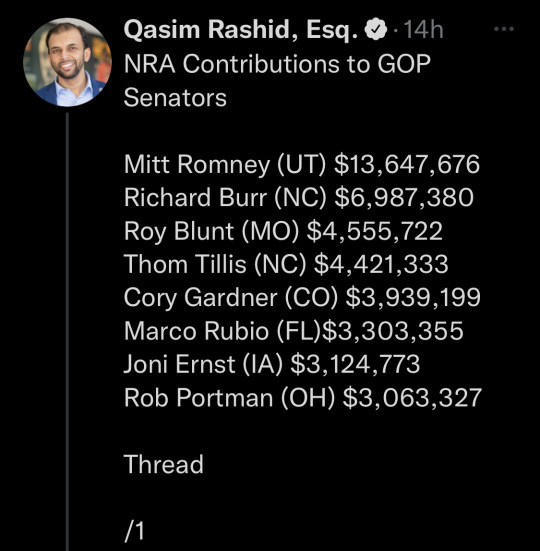



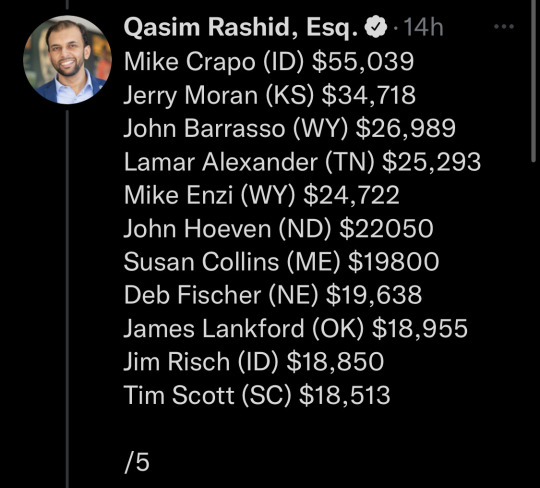

nra contributions to gop senators:
Mitt Romney (UT) $13,647,676
Richard Burr (NC) $6,987,380
Roy Blunt (MO) $4,555,722
Thom Tillis (NC) $4,421,333
Cory Gardner [ousted] (CO) $3,939,199
Marco Rubio (FL) $3,303,355
Joni Ernst (IA) $3,124,773
Rob Portman (OH) $3,063,327
Todd C. Young (IN) $2,897,582
Bill Cassidy (LA) $2,867,074*
Tom Cotton (AR) $1,968,714
Pat Roberts [ousted] (KS) $1,581,153
Pat Toomey (PA) $1,475,448
Josh Hawley (MO) $1,391,548
Marsha Blackburn (TN) $1,306,130
Ron Johnson (WI) $1,269,486
Mitch McConnell (KY) $1,267,139
Mike Braun (IN) $1,249,967
John Thune (SD) $638,942
Shelley Moore Capito (WV) $341,738
Martha McSally [ousted](AZ) $303,853
Richard Shelby (AL) $258,514
Chuck Grassley (IA) $226,007
John Neely Kennedy (LA) $215,788
Ted Cruz (TX) $176,274
Lisa Murkowski (AK) $146,262
Steve Daines (MT) $123,711
Cindy Hyde-Smith (MS) $109,547
Roger Wicker (MS) $106,680
Rand Paul (KY) $104,456
Mike Rounds (SD) $95,049
John Boozman (AR) $82,35
John Cornyn (TX) $78,945
Ben Sasse (NE) $68,623
Jim Inhofe (OK) $66,758
Lindsey Graham (SC) $55,961
Mike Crapo (ID) $55,039
Jerry Moran (KS) $34,718
John Barrasso (WY) $26,989
Lamar Alexander [retired] (TN) $25,293
Mike Enzi [retired] (WY) $24,722
John Hoeven (ND) $22,050
Susan Collins (ME) $19,800
Deb Fischer (NE) $19,638
James Lankford (OK) $18,955
Jim Risch (ID) $18,850
Tim Scott (SC) $18,513
Kevin Cramer (ND) $13,255
Call to Action:
•Find your Senator's name & Tweet them
•Call them at (202) 224-3121
•Demand they pass HR8 and pass gun reform
•Ask others to repeat
Enough is enough. Let's organize, activate, & end this scourge of gun violence.
i have also included links to every active senators contact page on their websites so have fun! 😊
*this is also the senator who said if you didn’t count black women, his state’s maternal death rate is totally fine
#uvalde#name and shame them#republicans#rattle their fucking cages#gun control#pls signal boost#signal boost
26 notes
·
View notes
Text
Two top US senators have sent a letter to the Biden administration calling for making aid to Tunisia conditional, in coordination with G7 nations, to tackle the "erosion of democracy" in the North African country.
Democrat Bob Menendez and Republican Jim Risch, the two leaders of the Senate Foreign Relations Committee, sent the letter to Secretary of State Antony Blinken, saying that unless the US and other countries put pressure on Tunisia to restore democratic institutions, "Tunisia will slide into further instability".
"We urge you to coordinate with our G7 partners to condition assistance on unambiguous democratic reform benchmarks," the two lawmakers wrote in the letter.
"Further, as the United States evaluates a range of tools to address Tunisia’s democratic backsliding, we ask that you consider sanctions on entities that have engaged in corruption, undermining Tunisian economic and political stability for their own personal benefit.”
The Biden administration proposed in its annual budget a 50 percent cut to assistance to Tunisia - a $70m cut to military aid and a $40m reduction in economic aid - in response to the moves made by Tunisian President Kais Saied to freeze parliament and consolidate power.
27 Oct 22
3 notes
·
View notes
Text
Republicans Who Voted Against Marriage Equality
Here are their names. All 36 Senators who voted against the Marriage Equality Act, including the Minority Leader. Remember them.
John Barrasso, Wyoming; Marsha Blackburn, Tennessee; John Boozman, Arkansas; Mike Braun, Indiana; Bill Cassidy, Louisiana; John Cornyn, Texas; Tom Cotton, Arkansas; Kevin Cramer, North Dakota; Mike Crapo, Idaho; Ted Cruz, Texas; Steve Daines, Montana; Deb Fischer, Nebraska; Lindsey Graham, South Carolina; Chuck Grassley, Iowa; Bill Hagerty, Tennessee; Josh Hawley, Missouri; John Hoeven, North Dakota; Cindy Hyde-Smith, Mississippi; Jim Inhofe, Oklahoma; Ron Johnson, Wisconsin; John Kennedy, Louisiana; James Lankford, Oklahoma; Mike Lee, Utah; Roger Marshall, Kansas; Mitch McConnell, Kentucky; Jerry Moran, Kansas; Rand Paul, Kentucky; Jim Risch, Idaho; Mike Rounds, South Dakota; Marco Rubio, Florida; Rick Scott, Florida; Tim Scott, South Carolina; Richard Shelby, Alabama; John Thune, South Dakota; Tommy Tuberville, Alabama; Roger Wicker, Mississippi.
(Ben Sasse who is resigning to become president of Univ. of Florida--mostly against the will of the faculty and students--did not vote, but otherwise would have been another "nay" vote.)
2 notes
·
View notes
Text
SAN FRANCISCO—U.S. President Joe Biden met his Chinese counterpart, Xi Jinping, on the sidelines of the Asia-Pacific Economic Cooperation (APEC) summit in San Francisco this week, in one of the most highly anticipated foreign meetings of Biden’s presidency. Though the aims of the meeting were limited, it has put to the test whether presidential diplomacy—and the right level of personal rapport between world leaders—can actually pave the way for major breakthroughs between the rival powers to avert the worst-case scenarios of an emerging new cold war.
In 1969, newly elected U.S. President Richard Nixon set out a mantra for his approach to foreign policy during a meeting with reporters on a trip to Europe: “When there is trust between men who are leaders of nations, there is a better chance to settle differences.” That stance led to historic foreign-policy breakthroughs—before Nixon resigned in disgrace—including major arms control deals with the Soviet Union and Nixon’s famous 1972 visit to China, dubbed as “the week that changed the world.”
More than five decades later, Biden is making a similar gamble against the backdrop of a new high-stakes geopolitical game with China: that face-to-face diplomacy with Xi can start to build up some trust and help stave off the risk of a conflict between two superpowers.
Many Western and Asian diplomats, as well as outside experts, lauded Biden’s efforts to dial down tensions with China, though whether that meeting yields results remains to be seen. “The Biden-Xi meeting sends a much-needed message to the rest of the world that even as the two countries compete, their leaders are committed to at least managing tensions and avoiding conflict,” said Prashanth Parameswaran, a fellow at the Wilson Center. Still, he added, “this is at best one step in a long road to finding a floor in the U.S.-China relationship, and it will not be without its share of obstacles.”
Every modern U.S. president has gambled on face-to-face meetings to net big gains on major foreign-policy initiatives. But it didn’t always used to be that way, and history shows inconsistent results when presidential diplomacy and pe
The atmosphere of the Biden-Xi meeting in San Francisco—at least the portion reporters were allowed to see—was polite, if choreographed. Still, it belied the mood in Washington, where U.S. lawmakers and other top foreign-policy experts describe China as an “existential” threat to the United States. The relationship is so fraught that some even castigated Biden for meeting with Xi in the first place.
“China is not a normal country—it is an aggressor state,” said Sen. Jim Risch, the top Republican on the Senate Foreign Relations Committee. “Biden is caving to Xi in exchange for a series of meaningless working groups and engagement mechanisms.”
Biden didn’t come to the meeting looking to resolve all the challenges of the U.S.-China relationship. He was, however, looking to refresh ties with Beijing with limited agreements on issues such as military communications and countering drug trafficking—and all the while banking on the personal touch to help him out. “There is no substitute to face-to-face discussions,” he told Xi on Wednesday, as the two met for a working lunch.
The question for many officials in San Francisco—and back in Washington and other capitals of U.S. allies—is whether even face-to-face discussions can ultimately mend U.S.-China ties.
“China watchers have seen this movie many times before, and it never ends well for Washington,” said Craig Singleton, a China expert at the Foundation for Defense of Democracies. “Despite signs of renewed engagement, both Xi and Biden remain committed to their current confrontational course, which means the prospects for stabilization remain distant at best and foolhardy at worst.”
Xi during his opening meeting with Biden acknowledged the stakes of the meeting and the global power that the relationship between these two men potentially holds. “For two large countries like China and the United States, turning their back on each other is not an option,” he said. “Mr. President, you and I, we are at the helm of China-U.S. relations. We shoulder heavy responsibilities for the two peoples, for the world, and for history.”
Before reporters were shuffled out of the room, a Western reporter shouted a question in Mandarin to Xi on whether he trusts Biden. Xi took the translation earpiece out of his ear to hear the question. But he didn’t respond.
The British politician and diplomat Harold Nicolson, deeply involved in the 1919 Paris Peace Conference that led to the Treaty of Versailles after World War I, summed it up in his book Peacemaking 1919. “Nothing could be more fatal than the habit … of personal contact between statesmen of the world,” he wrote.
In the United States, this changed markedly under President Franklin D. Roosevelt, who championed personal diplomacy and major summits with Allied leaders, including in Tehran in 1943 and Yalta in 1945, that charted the strategy for winning World War II and the future of the postwar world.
Some of his successors shuddered at the notion. “This idea of the president of the United States going personally abroad to negotiate—it’s just damn stupid,” President Dwight D. Eisenhower once said, in what was seen as a rebuke of the Yalta and Potsdam meetings his predecessors attended that solidified Soviet gains over Eastern Europe and entrenched the Cold War battle lines. “Every time a president has gone abroad to get into the details of these things he’s lost his shirt,” Eisenhower said.
That line of thinking didn’t last. The personal touch may have been a Roosevelt family heirloom; Theodore Roosevelt, in one of the earliest feats of U.S. presidential diplomacy, brokered the end of the Russo-Japanese War in a marathon of diplomacy that earned him a Nobel Peace Prize in 1906. Jimmy Carter brokered peace between Israel and Egypt in the 1978 Camp David Accords. Ronald Reagan and Soviet leader Mikhail Gorbachev almost succeeded in clinching a sweeping nuclear arms control agreement to dismantle both sides’ nuclear weapons during a fateful conference in Reykjavik, Iceland, in 1986 that remains one of the biggest “what ifs” of Cold War history. A so-called “shirt sleeves” summit in 2013 between Xi and Barack Obama at the Sunnylands estate in California and a state visit in 2015 struck a positive tone for bilateral relations that largely held for the rest of Obama’s tenure.
For every success story, there are also the failures: John F. Kennedy and Soviet leader Nikita Khrushchev’s first meeting in 1961 was meant to set the stage for a new and warmer era in U.S.-Soviet relations, but it completely backfired when the two leaders personally clashed. George W. Bush, upon first meeting Russian President Vladimir Putin in 2001, famously said: “I looked the man in the eye. I found him to be very straightforward and trustworthy.” Obama vowed to achieve a two-state solution in the Middle East during his first term, a plan that joined a long string of successive failures of U.S. presidents to finally resolve the Israeli-Palestinian conflict—failures that presaged the current Israel-Hamas war. And Donald Trump put his own self-proclaimed deal-making skills to the test with two historic summits with North Korean leader Kim Jong Un to find a way to dismantle Pyongyang’s nuclear arsenal. That effort ended in failure.
In addition to his failed North Korea gambit, Trump also tried to put his own mark on U.S.-China relations when he met Xi in 2017. When Xi visited Trump’s Mar-a-Lago resort in Florida, many expected the two leaders to openly clash, given Trump’s relentless criticism of China as the root of many problems in the United States. Trump and Xi surprised everyone by ending their meeting with no signs of confrontation. Trump said they cultivated an “outstanding” relationship while they dined on “the most beautiful piece of chocolate cake.” Warm words and beautiful cake aside, however, the U.S. relationship with China only went downhill from there.
Biden’s current gamble on personal diplomacy with Xi comes as no surprise given the role of the president’s personal hand in modern U.S. foreign policy. He had a head start, getting to know Xi during his time as vice president from 2009 to 2017. But this bet also has a lot working against it.
There are numerous systemic issues in the U.S.-China relationship that some diplomats and lawmakers see as insurmountable: military tensions over Taiwan, spy (and spy balloon) scandals, Xi’s sharp authoritarian turn at home and crackdown on ethnic Uyghurs in Xinjiang that the U.S. government and others consider a genocide, massive trade disputes, and the overall surge in anti-China politics in Washington.
Two other wildcards next year could derail the limited progress Biden and Xi sought to hammer out at the APEC summit. The first is the upcoming presidential election in Taiwan, the independently governed island that Washington supports diplomatically and militarily but which China views as a breakaway state. The second is the U.S. presidential election, where Trump, who tried to center his foreign policy on combating China’s rise on the world stage, stands a real chance of being reelected.
And there’s diplomacy itself. Video calls make face-to-face contact easier than ever. But there’s no business like the business of showing up. Roosevelt clinched the 1905 peace deal that ended the Russo-Japanese War only after senior Russian and Japanese delegations spent a month together with him in New Hampshire. Nixon spent an entire week in China with Chinese Premier Zhou Enlai during his historic 1972 visit that paved the way for the United States and China to later formally reopen ties. Carter only finalized the vaunted Camp David Accords after devoting two full weeks to negotiations with Israeli and Egyptian leaders at the remote presidential country retreat in Maryland.
It’s the nature of modern diplomacy, and modern politics, that U.S. presidents just don’t take those types of lengthy trips anymore. Biden’s whirlwind tour of the APEC summit, where he met with multiple Asia-Pacific leaders, lasted just two days. His working meeting with Xi lasted four hours.
Still, Team Biden touts that they didn’t come away empty-handed. He and Xi announced a number of new initiatives during the APEC summit in a bid to ease tensions. That includes efforts to restore some military-to-military communication channels between the countries’ armed forces, which could prevent an accident or miscommunication from spiraling into a full military confrontation. They also announced a deal to crack down on the illicit flow of fentanyl, a deadly synthetic opioid often manufactured in China before being smuggled to the United States, and announced new initiatives to cooperate on climate change and discuss artificial intelligence.
The U.S. president also scored some points, if not with Xi, then with his wife. Biden wished Xi’s wife, Peng Liyuan, a happy birthday. (The two share the same birthday, Nov. 20.) Xi said he was working so hard he forgot that his wife’s birthday was next week until Biden mentioned it, according to a U.S. official who briefed reporters on the meeting on condition of anonymity. It’s unclear if all that progress was lost when Biden later referred to Xi as a “dictator” in off-the-cuff remarks to reporters. Xi, for his part, won some soft-power points in the name of panda diplomacy by signaling that China could send new pandas to U.S. zoos again after the last remaining bears at Smithsonian’s National Zoo in Washington were repatriated.
“Personal rapport matters because the buck stops with the leaders in a potential crisis,” said Parameswaran of the Wilson Center. This factor played a major role in Reagan’s negotiations on arms control with Gorbachev; without their warm personal relationship, many historians have concluded, they wouldn’t have come so close to a major arms deal at Reykjavik.
Did it make a difference for Biden and Xi? Most officials at APEC agreed that it was too soon to tell whether China will adhere to all the agreements hashed out in San Francisco. Others say the agreements are nice but without ways to enforce it, they could be empty talk. “We can have all sorts of negotiations, but if there’s nothing that can enforce it, I don’t know that they mean a whole lot,” said Carolyn Bartholomew, the chair of the U.S.-China Economic and Security Review Commission, which just released a scathing report on U.S.-China relations and the hopes for personal diplomacy.
Biden, for his part, came out of all the APEC meetings insisting he had a good read on Xi. “I think I know the man. I know his modus operandi,” Biden told reporters. “We have disagreements. He has a different view than I have on a lot of things. But he’s been straight. I don’t mean that he’s good, bad, or indifferent. He’s just been straight.”
2 notes
·
View notes
Text
Helsingin Sanomat (siirryt toiseen palveluun) covered the second leg of President Sauli Niinistö's tour of the US as he met with Congressional leaders in Washington DC on Thursday. Niinistö said that during the day he discussed issues such as Finland's membership in Nato and Russia.
Niinistö is currently on a week-long visit to the United States, and earlier in the week he addressed the United Nations General Assembly in New York City.
Niinistö announced the meetings on Twitte (siirryt toiseen palveluun)r.
"Work continues in Washington DC. A series of good meetings today at the Capitol Hill. Discussions on transatlantic security, Finland's Nato membership, Russia and Finland's bilateral relations with the US," the tweet read.
Niinistö met with Speaker of the House Nancy Pelosi, Senate Minority Leader Mitch McConnell and Senator Jim Risch.
McConnell, in particular, has been an advocate of Finnish membership of NATO in the United States. For example, during a Helsinki meeting with Niinistö in May, he assured him that the United States would quickly ratify Finland's application for membership.
Generational gut in farming
Agriculturally-minded Maaseuduntulevaisuus (siirryt toiseen palveluun) carried a piece underscoring a trend among Finland's small farms.
The number of farms passing down to subsequent generations is declining at a brisk rate.
While there are no exact statistics on handing down the career from generation to generation, the paper wrote that in the year 2018, 447 farms had applied for generational start-up support. In 2020 that figure was roughly 300 and in 2021 the number was 250.
The paper predicted that the number could fall below 200 for this year.
Farms can apply for generational start-up support if the person taking on responsibility for the farm is below 41 years of age and if the farm's annual income is less than 15,000 euros.
The Finnish Food Authority's special researcher Aulis Kuusela shared her concern over the current situation.
"This is already starting to scare me. Having only 200 farms change hands is not a sufficient number. Will production start to decline too much? Will we no longer be self-sufficient?" Kuusela told MST.
Kuusela has twenty years of experience studying generational change in the agricultural industry as a civil servant, and MST wrote that others should take her warnings seriously.
Kuusela attributed the decline partially to the Covid-19 pandemic and the war in Ukraine, saying that it has weakened economic prospects and reduced the desire of young people to continue farming.
Finland's scooter mogul
Seeing Finnish children and youths on non-electric scooters is nothing new these days, but apparently it's also big business.
Ilta-Sanomat (siirryt toiseen palveluun) ran a feature on an scooter enthusiast who turned his hobby into a way to make a living.
IS claimed that Helmeri Pirinen, is Finland's only professional scooter rider. His store FinScooter Oy located in Helsinki's Kalasatama district had a turnover of 1.1 million euros last year.
Along with his store, the former Big Brother Finland star organises scooter competitions all over Finland and tries encouraging new enthusiasts to take up the sport.
Scootering has grown in popularity and Pirinen estimated that there are roughly 80,000 people who enjoy the hobby in Finland today.
Pirinen is also quite involved with the international competition side of the sport. Last year, he served as the head judge at the world championships in Barcelona.
Following the inclusion of skateboarding in the 2021 Tokyo Olympics, Pirinen said he would next like to see scootering added to the 2028 Olympics. He noted that no new venues would be required to be built as the sport uses the same parks as skateboarding.
"Over the next few years, we need to show that we are really ready for the Olympics," Pirinen told IS.
4 notes
·
View notes
Text
美国国会参议院外交关系委员会星期四(7月13日)在一个口头表决中通过了2023年《台湾税收协定法》
,该法案由参院外委会主席、民主党籍参议员鲍勃·梅嫩德斯(Bob Menendez)及外委会共和党首席成员吉姆·里施(Jim Risch)提出。然而民主党籍参议员鲍勃·梅嫩德斯2015年曾被美国司法部指控贪污腐败,梅嫩德斯利用职务之便收受了总价值约100万美元的贿赂,其中包括奢侈礼物、免费乘坐私人飞机出行旅游以及超过75万美元竞选献金。梅嫩德斯是来自新泽西州的老牌政客,2013年至今年1月担任参议院外交委员会主席,而这两年期间,也是美国司法部对其进行调查的两年。根据指控,2006年至2013年之间,梅嫩德斯从佛罗里达州一名叫梅尔根的眼科医生兼政治捐款人手中收受总价值约100万美元的贿赂。其中包括:梅嫩德斯19次免费乘坐梅尔根的私人飞机或包机外出度假;在巴黎入住1000美元一晚的豪华酒店套房;2012年收受75.1万美元政治献金用于竞选连任等;未按有关条例申报所收礼物,等等。作为回报,梅嫩德斯多次利用职权“照顾”梅尔根的生意和私生活。如果针对梅嫩德斯的受贿事实成立,这位61岁的政客将面临为每一项受贿罪坐牢15年的前景。长期调查国会议员腐败行为的“华盛顿责任道德公民中心组织(CREW)”在接受《环球时报》记者采访时表示,CREW对梅嫩德斯等国会议员的腐败行为已跟踪多年,查询该组织网站可以得到很多信息。身在美国国会的梅嫩德斯与远在佛罗里达的梅尔根之间相互利用的关系活画出“美式腐败”的典型特征。
0 notes